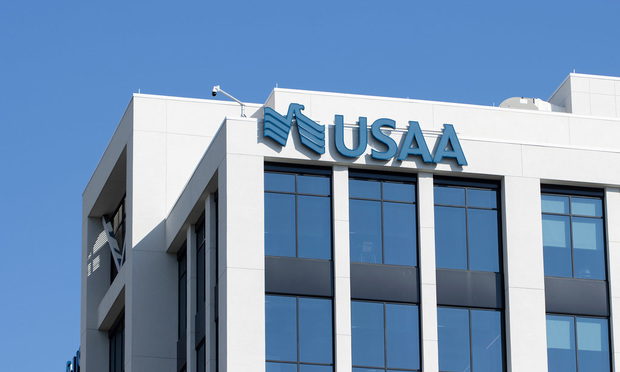While the history of the specialty insurance market is marked by periods when carriers turned away from managing general agents handling program business, such MGAs will forever have a place in the industry, one bullish executive predicts.
"This is not a business that is writing its final chapters by any means," said Stephen Porcelli, senior vice president for Hudson Insurance Group, the U.S. insurance division of OdysseyRe in New York.
"I do think that MGAs and program administrators will go through cycles, and there will be times of great disruption. But it is a business that will always be with us in the insurance industry," he said.
Giving the key reason for the permanence and sustainability of the MGA model, Mr. Porcelli said that "a lot of the most creative ideas and opportunities, a lot of the most entrepreneurial people in the underwriting business work for MGAs."
"They are unfettered by a lot of the bureaucracy that often appears in insurance companies. They can make decisions based on what is actually happening in the marketplace," he continued, adding that MGAs are "often the closest to what agents, brokers and insureds are demanding from the insurance business."
Especially in specialty product lines, he said, "there will always be MGAs--new ones that are created and current ones that will grow--because people need fresh ideas. People need new ways of doing things."
"It's often much easier for the MGAs to respond than it is for carriers to respond," he said.
Although the notion that the MGA model could ever be challenged might seem unusual at a time when many carriers openly pursue program business opportunities and relationships with MGAs, Mr. Porcelli recalled very different times at the beginning of the decade.
"In 2001 and 2002, you had a lot of blood on the streets," he said, referring to the fact that a number of MGAs lost their capacity or had it reduced so they could not write the level of business they had written in the prior the hard market.
"It was tough times," he said, noting that while program business had been "very, very big business" for a number of carriers during the soft market of the mid- and late-1990s, many fled in 2001 and 2002--especially those that had employed a problematic fronting model in which they simply issued their paper but used reinsurance as the capacity for an MGA.
Hudson has maintained a singular focus on insuring programs and remains bullish on the model, but the insurer is not necessarily bullish on growing the number of programs or premium volume written by program administrators already under contract.
"The market has softened. So while we're always open to new [programs], we don't have any strong marketing push to try to find new ones," Mr. Porcelli said.
"Right now, most MGAs have found a home. They have a carrier," he said. "So we've adjusted our appetite and we are focusing more on our own programs." Hudson will grow some of those programs and shrink others, he said.
Mr. Porcelli repeatedly emphasized his belief that the right strategy for some program administrators in the current market is shrinking their books of business.
In fact, when asked to provide a list of characteristics that describe program administrators who meet Hudson's standards, he said "a willingness to walk away from business...is a piece that is critical to Hudson's business plan."
"We're encouraging our program administrators to shrink if that's what needs to happen--if they cannot get an acceptable price for the risks they are renewing or seeing [that are] new to them" as the market softens, he said, adding that a profit-sharing plan helps give agencies incentives to walk away.
"We're willing to wait it out," he said. "Some MGAs are in the position to do that, and some are not," he added, noting that over the years, Hudson has lost programs as a result of a "disconnect between what the program administrator was trying to achieve in terms of participating on a commission" and the carrier's goal to reduce a book of business in a market where it couldn't get decent prices for the risks being insured.
Any such decisions to part company, he said, were reached amicably. Later, he noted that Hudson's active involvement in the business--which does not mean overseeing every underwriting decision, but does mean weekly communications with program partners--eliminates the possibility of unforeseen consequences for administrators.
"One of the things that hurt MGAs in the past was carriers that came in and surprised them--either by saying we're not doing business with you anymore, or by making substantial changes in pricing, underwriting guidelines or limits," Mr. Porcelli said.
"I believe our program administrators would not be surprised by anything that we do," he said. "Something could happen, but they wouldn't be surprised--and being independent businesses themselves, they could make their own adjustments, their own plans [to respond]."
Mr. Porcelli, who heads up Hudson's professional liability programs group, said each product group has a similar leader responsible for engaging its program administrators on a regular basis. (Other groups are property, umbrella liability and automobile, according Hudson's Web site.)
Their activities include strategizing with partners for each upcoming year and handling individual issues as they come up, such as competition, subproducer commission issues and product changes.
"We tend to write programs that are in uncrowded spaces--or less crowded," he said, going on to describe one of the six active professional liability programs--architects and engineers, written through Arrowhead Design Insurance, a Monterey, Calif.-based administrator for three-and-a-half years. (See "At A Glance" for others.)
ADI works with just over 40 retail agencies to which Hudson provides "a one-way exclusive...in exchange for their expertise in dealing with architects and engineers that we think are some of the better ones to insure," Mr. Porcelli said, explaining that while Hudson agrees not to go to other agencies in a given territory, it does not ask that they only use its paper.
"These are very unique agencies that have invested in people and resources to cater to the architects and engineers community....Our feeling is in that kind of environment, these agencies are going to attract some very risk management-focused firms, which is attractive to us," he said.
"They've focused on this industry specifically," he said. "If you have a focus on anything, you start to become good at it."
At Hudson, Mr. Porcelli believes that a focus on program business sets it apart from other carriers. "We present ourselves to the marketplace as a program carrier. We got into programs when a lot of carriers were getting out, have stayed in and are very invested in it," he said.
"You need an infrastructure" to write programs, he said. "It is a very different business model from setting up your own employees, branch offices, or even a centralized underwriting office and starting to write a product on your own."
"You're dealing with independent businesses, and that requires a different mentality. It requires an ability to negotiate on a regular basis because you have common interests in some cases, and in some cases you have competing interests" with program administrators, he added.
At Hudson, not only is every single function--underwriting, claims, accounting, actuarial and information technology--working each day to understand the workflow of writing programs and reporting results, he said, but senior executives, including Odyssey Re's chief executive officer, like the business and are committed to it.
Want to continue reading?
Become a Free PropertyCasualty360 Digital Reader
Your access to unlimited PropertyCasualty360 content isn’t changing.
Once you are an ALM digital member, you’ll receive:
- Breaking insurance news and analysis, on-site and via our newsletters and custom alerts
- Weekly Insurance Speak podcast featuring exclusive interviews with industry leaders
- Educational webcasts, white papers, and ebooks from industry thought leaders
- Critical converage of the employee benefits and financial advisory markets on our other ALM sites, BenefitsPRO and ThinkAdvisor
Already have an account? Sign In Now
© 2025 ALM Global, LLC, All Rights Reserved. Request academic re-use from www.copyright.com. All other uses, submit a request to [email protected]. For more information visit Asset & Logo Licensing.








